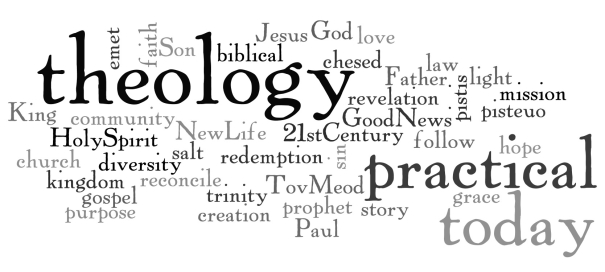It was the mid-1980s, a couple years after discovering I wasn’t the Good Samaritan. I had taken some Young Life kids to the Boundary Waters Canoe Area in Northern Minnesota for stress camping, hoping it would stretch their developing faith. It did just that, but I felt the experience was still a bit self-focused. So we decided in subsequent years to take kids out of their comfort zones into a serving capacity. What we did was a precursor to today’s mission trips. Our first trip was to Haiti. Our second trip was to Kansas City, MO, to work with Habitat for Humanity. The third trip was back to KC, helping a large, white, urban church re-purpose some underutilized space. They wanted to create a community ministry to their neighbors, including the construction of space for a food pantry.
To set up the trip, I visited the church to see what work needed to be done and to begin planning for the project (I convinced them, as an engineer, I could serve as the project foreman). During the trip, I spent much of my time with the pastor. He had a significantly different worldview than I did – enough that I knew I could/should learn from him. Still trying to figure out how to navigate and interpret scripture in an exegetical manner, I asked him, “How do we know how to interpret scripture properly? After all, we have been at this a lot of years, yet we seem to have a lot of differing opinions.” His response was transformative…

He reminded me that scripture should always be interpreted in context. (I knew this already, as did most people I suspected.) He went on to remind me that the broader the context, the better. (I think I knew this as well, but wasn’t sure how to do it practically.) The broadest possible context for interpretation, he suggested, is the entire Word of God – the whole Bible. (My first thought was, “Serious? How is that even practicable?”) Then he made a statement that sent chills through my body…
“And always remember,” he said, “the Word became became flesh (John 1, 14). If what you are reading doesn’t line up with Jesus’ words and deeds, then there is something else going on in the passage.” This resonated with me. This was such good news. I could wrap my head around the concept that all scripture needed to align with the Word that became flesh, with Jesus. This made scripture reading and honest attempts at interpretation possible and practical.
That was about 35 years ago. The adage that all scripture needs to align with Jesus has served me well all these years. Do I still have questions about the paradoxes presented in scripture? Absolutely! (Maybe even more questions as I get older.) But this I can rest on – with Jesus as my standard, I can live with the paradoxes. Why? The paradoxes drive me back to Jesus and the more time I spend with Him, the more I understand what God is up to. And the more time I spend with Jesus, the more my mind is shaped, allowing for transformation (Romans 12:2) – I actually start to become like him (Philippians 2:5-11).
